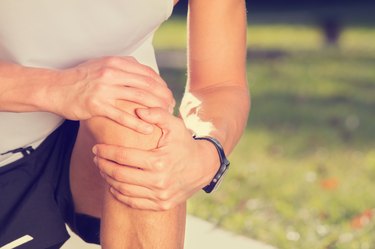
Getting tripped up during a sporting event or simply losing your balance while strolling down a sidewalk can have painful consequences. Your knee may take the hit or twist and bend awkwardly during a fall. The American Academy of Orthopaedic Surgeons reports that the most common knee injuries include ligament or soft tissue tears, fractures and dislocations -- all of which can cause pain when bending your knee.
Fluid in the Knee Joint
Video of the Day
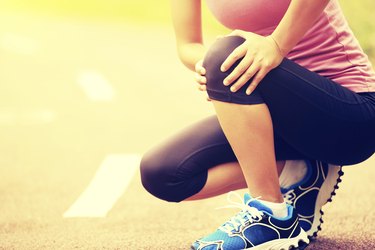
A knee injury often results in inflammation with fluid in the knee. When fluid is taking up space in the joint, you may feel stiffness or have difficulty with knee movements like bending. The increased pressure in the joint can also trigger pain receptors and cause discomfort. Knee bending usually becomes painless once the fluid goes away, if there is no permanent damage from the fall.
Video of the Day
Bone and Cartilage Injuries
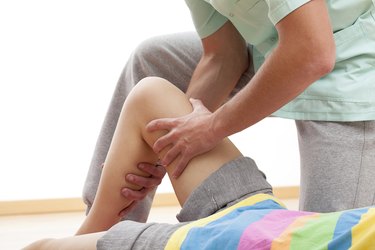
A direct blow to your kneecap from a fall can cause a fracture. This injury usually results in significant inflammation at the front of the knee and painful bending and straightening. A kneecap dislocation is dramatic and occurs when the kneecap is forced out of its groove. All knee movement is difficult when this occurs. A cartilage injury is usually less obvious than a fracture or dislocation. Cartilage -- the smooth tissue that lines your joints -- can get torn or scraped as a result of trauma. Pieces of cartilage may break off and move around your knee joint, causing pain with bending.
Ligament Injuries
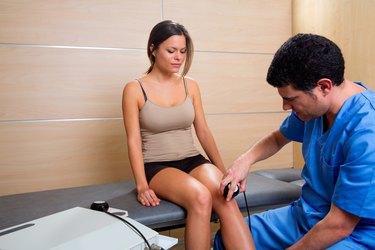
Ligament injuries from a fall make the knee less stable and might lead to pain with bending. Injuring your anterior cruciate ligament -- or ACL -- often coincides with a popping sound and significant swelling. Immediately after an ACL tear, it's common to have pain with bending and straightening your knee, along with difficulty putting weight on your leg. The medial collateral ligament -- MCL -- is sprained when there is inward stress on the knee. An MCL tear usually causes pain on the inside knee with bending and twisting. Other knee ligaments can be injured with a fall, but ACL and MCL sprains are most common.
Meniscus Injuries
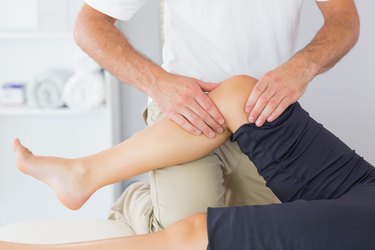
Each knee has a pair of menisci that are located between the bones of the knee joint. Menisci provide joint stability and absorb shock with impact activities. An injury causing the knee to bend and twist at the same time can lead to meniscal tears. This often results in pain with knee bending and joint clicking or locking. Bending and straightening the knee compresses different areas of the joint, which can pinch the menisci and cause pain.
Precautions
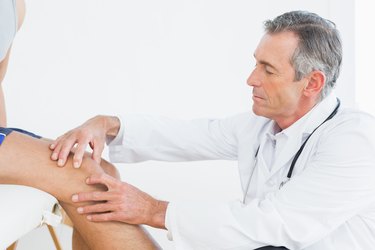
A fall can cause serious injuries to the knee that require medical care. If you experience severe pain and swelling, a noticeable joint deformity, or numbness, tingling or coldness below the knee, see your doctor right away. Also consult your doctor if you have persistent knee pain after a fall, even if it is not severe.
Is this an emergency? If you are experiencing serious medical symptoms, please see the National Library of Medicine’s list of signs you need emergency medical attention or call 911.